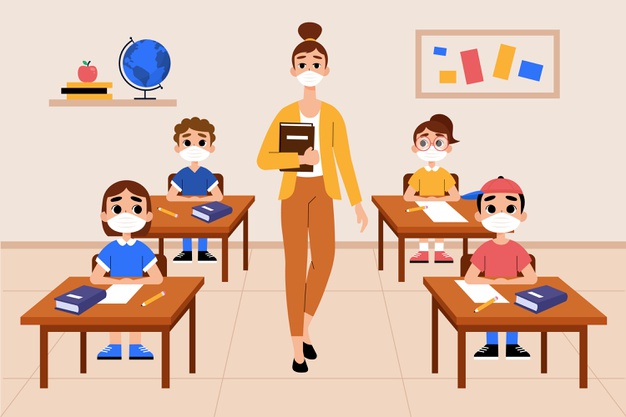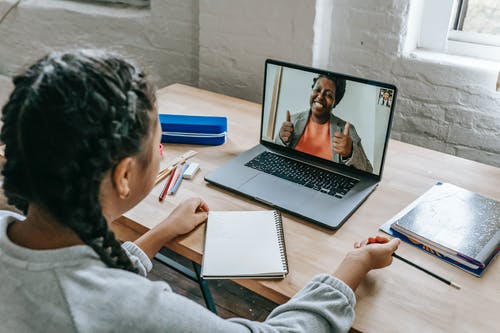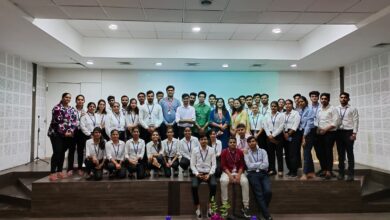COVID revolutionizing education around the world

We all know that covid is affecting almost every aspect of our lives today. One such significant impact which we all can see is that of covid on the education system in the entire world. E-learning and online classes are playing an essential role in transforming education across the globe. Schools, colleges, and universities are adopting different forms of remote learning. There is extensive use of software and application platforms like zoom, BYJU’S, Google classrooms, etc. E-learning is being encouraged everywhere so that the future of students can remain secure. Many protests are going on to reform rules in different states and countries.
Some schools are operating despite covid and have been kept open in several countries but follow covid norms (sanitizing the classrooms and following social distancing). In contrast, others follow the pattern of online classes. Online learning has its perks, but we cannot neglect its drawbacks too. The students use earphones or headphones and sit in front of their laptops, computers, or mobile screens for long hours, which affects their mental and physical health and increases stress. Many small and vital teachings are being neglected as teachers are unable to solve every student’s doubts online. Children in rural areas and all the children not having an internet connection cannot attend online classes. Parents are protesting to reduce the school fees for children as there is less use of resources when a child does not have to visit the institution.
Some students without reliable internet access or technology find it challenging to take part in digital learning; this gap is seen across different countries and between income brackets within countries. For example, while 95% of students in Switzerland, Austria, and Norway have a computer system to use for their schoolwork, only 34% in Indonesia do, according to OECD data. In the US, there is a major gap between those from privileged and disadvantaged backgrounds; in contrast, virtually all 15-year-olds from a privileged background said they had a computer system to operate on, almost 25% of those from disadvantaged backgrounds did not. Some governments and schools have been providing digital tools/equipment to students in need, such as in Australia, New South Wales, but it doesn’t seem to be possible for them at all times.
We all need to stay open to fresh ideas to develop innovative solutions asap to overcome the challenges of online learning.
What measures can be taken to make some changes in the education system to provide better facilities to children?
- Schools and colleges can make children aware regarding different courses that are available online so that the students can learn new things on their own.
- Different practices such as storytelling can be encouraged to enhance the overall creativity of a student.
- Teachers need to develop a good relationship with their students to make them understand things in a better way.
- Teachers must be trained on keeping their sessions interactive and keeping their students engaged in class.
- Personality grooming, evolution (advancement), meditation, and values should be taught so that one can learn that how he/she can work with complete dedication.
- Students should be explained the importance of health, fitness, creativity, and more of such significant concerns so that they can perform their best every single day.
- There should be more sports activities online for little children so that they can discover their interest in games.
- Partiality (same students are chosen for giving answers) must stop.
- Such projects must be given from which students can learn something extraordinary, something that can be used in real life.
- Teachers must ask for feedback from students after their every session.
- Students get depressed due to bullying in schools and colleges, so there should be an extra class to teach children the importance of discipline.
- Students can be provided with a platform that would allow them to express their ideas about anything and everything openly (an extra period can be taken for this).
- It should be taken care that every child/student follows the rules of an institute strictly.
- The ‘Learn by fun’ concept must be incorporated to make the teaching process playful. It would help students to understand things better.
- Analysis for the course taught in institutions must be done from time to time to revise the syllabus so that we can learn advanced things.
- For schools that are kept open, certain healthy practices must be followed to ensure the safety of the children. Schools should educate the staff and students on prevention measures for covid, develop a schedule for daily cleaning and disinfection of the school surroundings, and frequently touch surfaces, and ensure the availability of hand hygiene facilities and guidance on using masks.
- Schools should enforce different policies when kept open. One can be the policy of “staying home if unwell,” getting all the checks done after one has come in contact with a covid patient, and getting quarantined if sick with covid, and consider options for screening on arrival.
- Proper support must be provided to students who are unable to attend online classes. They can be telephoned so that their doubts can be made clear.
- Schools and colleges must try to understand that how they can make their methods of teaching more effective.
- Exams are getting cancelled/postponed again and again. There is a lot of uncertainty, which ultimately increases anxiety in children, so different organizations must keep this point in mind while making certain decisions regarding education in such a pandemic.
- Competitive exams are getting postponed, which disturbs the children preparing for them as everything becomes uncertain related to the actual date of exams.
A thorough study must be made by analyzing the current situation, and measures for effective learning must be made accordingly.








